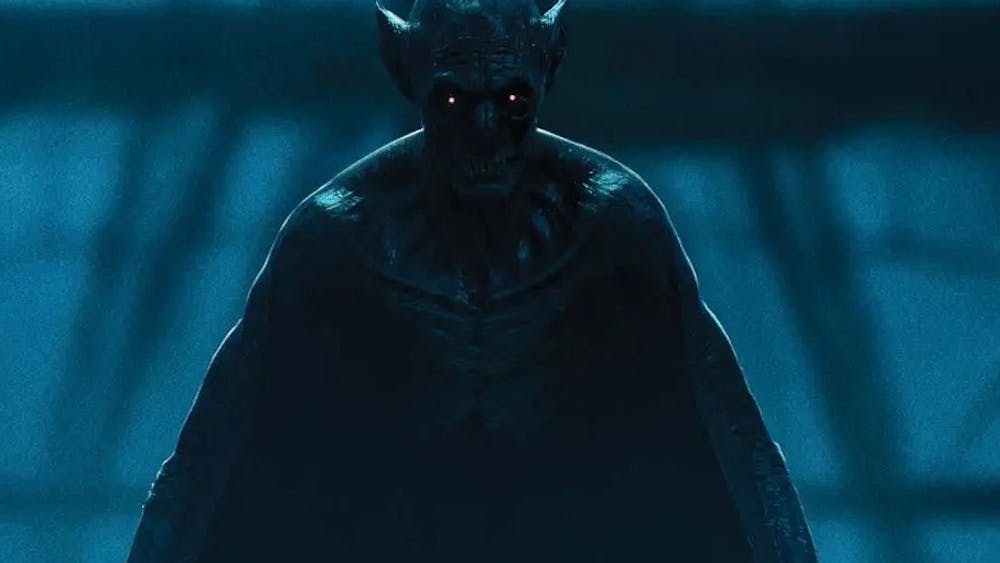Ants swarm Kilanga. Camouflaging with palm trees, mambas coil waiting for a kill. Disease gnaws at the children too weak to escape it. Beyond the jungle, a war for independence rages between diamond-hungry Belgium and America.
It is here in the Congo, Nathaniel Price decides to proselytize and baptize and plant his Georgian family in 1960. And it is here that author Barbara Kingsolver sets her 1998 novel “The Poisonwood Bible.”
His wife Orleanna offers a sort of retrospective apology at the beginning of each section, and the four Price daughters – Rachel, Leah, Adah and Ruth May – narrate the story.
With an all-female narrative, Nathaniel, an abusive, know-it-all literalist, becomes an almost mythic character, whose legend increases to biblical proportions after the Price daughters lose contact with him.
A hard man, the daughters repeatedly mention his struggle with cowardice in the eyes of “his” God. He puts his daughters in harm’s way, refusing to go back to America, even at the insistence of the missionary group. This blind faith and unwillingness to admit fault seems to be a bit of Kingsolver’s commentary on Western pride.
And his determination doesn’t spell success. His underestimation of cultural practices, such as polygamy and voodoo, and his lack of humility, even willing the land to yield American vegetables, separates the community from his ministries.
Language is one of the greatest barriers between Nathaniel and his Congolese audience.
Distrusting of his translator, the village schoolteacher Anatole, he attempts to preach some of the sermons in the native Lingala. He often repeats “Jesus is bangala” as his benediction, but “bangala” has several meanings, one meaning “most beloved” and another meaning “poisonwood,” a lethal tree that grows in the region.
But when words do translate, such as democracy and independence, Nathaniel can’t control the interpretation, with the congregation calling a vote for or against “Tata Jesus” in the middle of a church service.
Rachel, the eldest of the Price daughters, mangles English while constantly reminding everyone of her American roots. Sometimes very representative of American materialism, her prized possession is a mirror, and her main concerns lie with her lack of a love life and a wardrobe. However, she does openly criticize her mother for putting up with her father’s tantrums.
Capably constructed in the tradition of John Steinbeck’s “East of Eden,” twins Leah and Adah possess a rivalry that spurns literally from the womb. Leah used most of the nutrients during Orleanna’s pregnancy, resulting in Adah’s brain being half-shriveled and limp. This reasserts the idea of balance that is inherent in a story told from multiple perspectives.
Although her physical equilibrium might be thrown off, Adah, an observer, sees perfection in palindromes, delighting in being able to read books and people backward and forward. This sense presents her with a better understanding of mortality and survival of the fittest in the Congo.
She is also the first to notice Nathaniel’s hypocrisy, calling him “Our Father.”
Leah, a fast learner interested mainly in winning her father’s respect, falls in love with Anatole and gradually becomes interested in radical politics, despite Nathaniel’s traditional beliefs.
But the family’s fate depends mostly on the youngest child, Ruth May. She makes connections with the children in the village through making up words in a compromised language.
The first 400 pages are an in-depth account of one year, but the last 100 pages skim about 20 years. This section showcases more summary than scene – especially in Leah’s narrative. Often, these chapters drag.
Yet largely, “The Poisonwood Bible” handles Western politics, religious fervor and feminism with a gentle hand and critical eye. Each Price woman suffers guilt, while wondering where the blame lies for a crumbling family and a relentless jungle.
‘Poisonwood’ tangles family, pride in Congo
Get stories like this in your inbox
Subscribe





